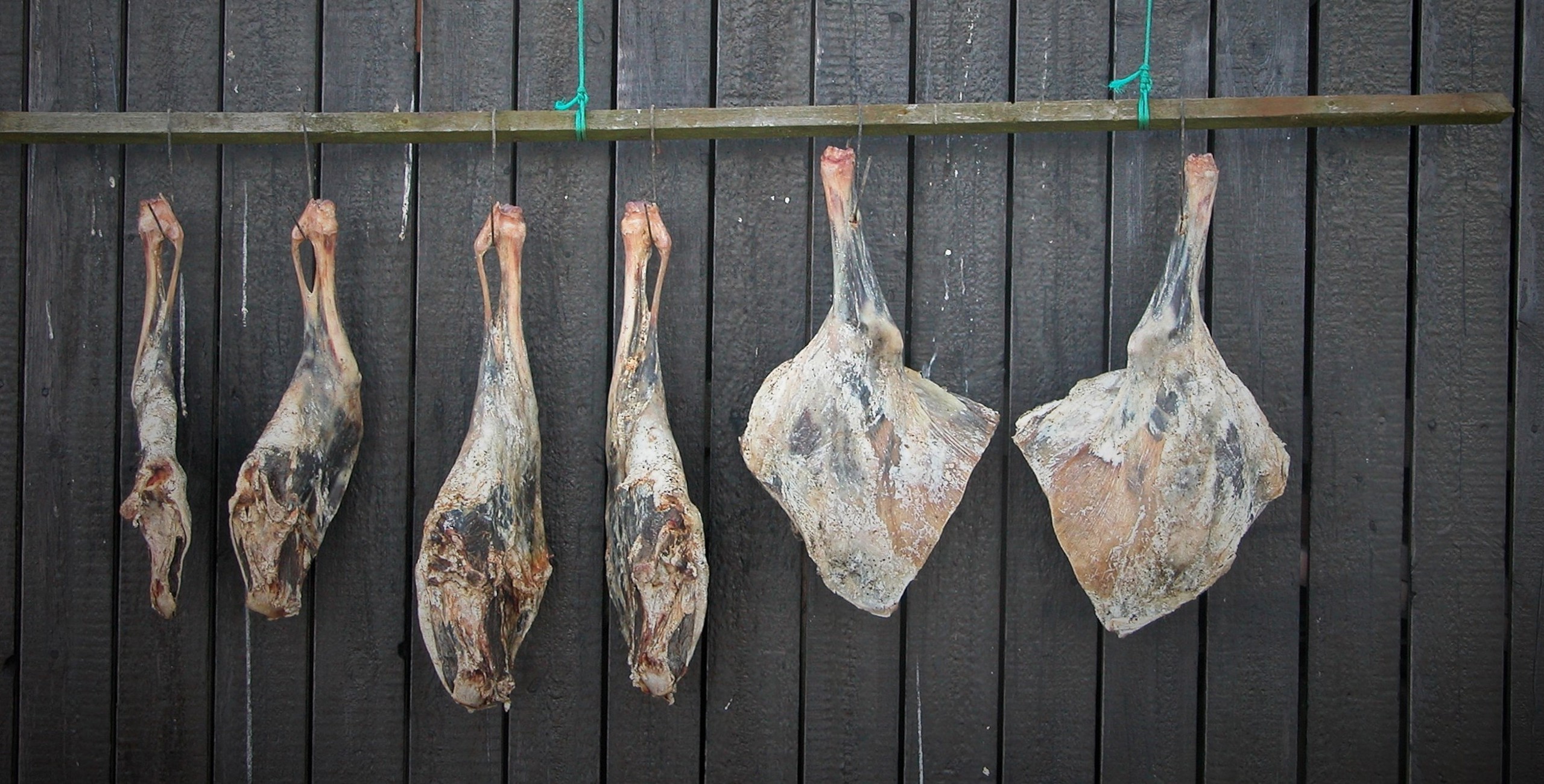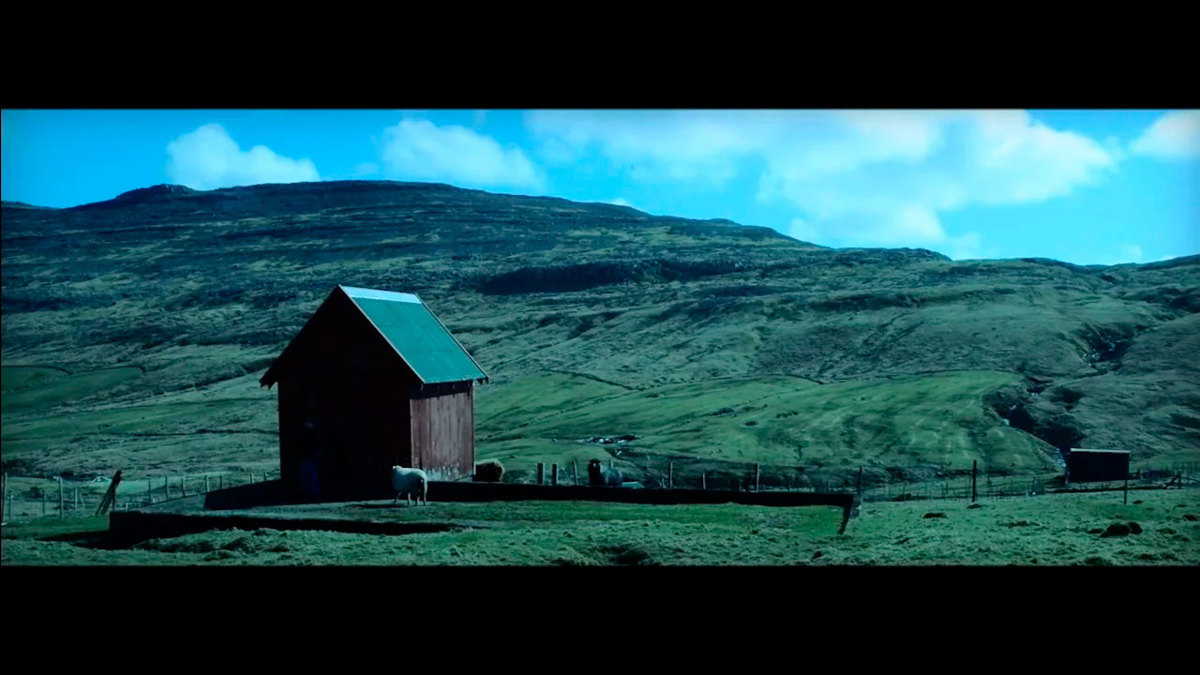
Faroese food culture goes back more than a thousand years to when the first Norwegian Vikings settled on the islands. At the time, food resources were scarce, consisting only of birds in the air, small vegetation in the valleys and fish and whales in the fjords. With them, the Vikings brought sheep, cattle and with time, other household animals and grain crops such as wheat.
Due to the climate-based limitations to agriculture and technological limitations to fishing, the art of survival was a challenge to the first many generations of Faroese people. It was a struggle to obtain enough in terms of both quantity and quality of nutrients. As a result, the Faroese learned to utilise every bit of every fish caught, every mammal slaughtered, and every bird netted. In addition to putting every part of their catch to good use, they also tried to store as much as possible for hard times.
For centuries, they managed to exploit the hidden treasures swimming in the seas, crawling along the seabed, sitting on cliff ledges and grazing on cliff terraces. Notably, they did very little in terms of artificially cultivating livestock. On the contrary, the Faroese have to a large extent always let the fish, shellfish, pilot whales, seaweed, birds and sheep roam free in their natural habitat, and to the islanders’ delight, this has resulted in very high quality foods.
Ræst - the North Atlantic umami
The creative ways they came up with to store their food over long periods without the luxury of modern freezers, have resulted in some unique flavours, inherently contingent on the climate in which meat and fish was stored. One of the distinct flavours that the Faroese have named ræst, comes from drying either meat or fish outdoors and in slatted sheds called “hjallar”, where an aging and fermenting process will take place. Whether the taste is acquired or not, however, is up to nature to decide, as warmer temperatures will spoil the meat, too much cold will prevent the fermenting process from occurring, and too much wind will render it tasteless.
Today, with new means of storing food, the traditional methods are unnecessary. Yet, the memory of more difficult times is hardly lost. The inherited principle of avoiding waste and the islanders’ love of the ræst taste has converted these former everyday-foods into modern delicacies. It has become an authentic expression of the past as well as it is the Faroese contribution to the palate of the international culinary scene. This unmistakable flavour is the cornerstone of the Faroese kitchen, the combination of natural phenomena peculiar to the Faroes and the deft skill of many generations. Ræst is a reflection of the age-old art of survival, but it is also, for the young chefs in the Faroes, the very embodiment of a contemporary construction, namely, umami – the fifth and little-known basic taste.

New gastronomic trends
The Faroese restaurant culture has changed drastically within the last decade and new restaurants are consistently emerging. Not only has it become more common for Faroe Islanders to eat at restaurants, they have also started to accept that traditional Faroese food is suitable for fine dining.
Led by a few individual, innovating and daring chefs – notably the celebrated Leif Sørensen – they refused to accept the age-old mantra, that Faroese food is not good enough for fine dining. These chefs have, to the surprise of the many of their countrymen, brought Faroese food into high-end restaurants, and their ingenious ways of reinventing the old dishes is attracting attention abroad as well as at home. Arguably, they could not have chosen a better time to step forward, because as much as the Faroese might cherish their traditional food, nostalgia and sentimentality are rarely enough to resist globalisation.
A new Faroese gastronomic scene has emerged and been recognized by international media as a New Nordic Food Frontier. In 2017, KOKS was the first Faroese restaurant to be awarded a Michelin star. KOKS’ passionate local chefs have let traditional Faroese tastes and unique fermentation skills inspire them to create highly inventive dishes, making the most of fresh local produce. KOKS was awarded a second Michelin star in 2019 and the Michelin’s new Green Clover Award in 2020, highlighting their efforts to promote sustainability.